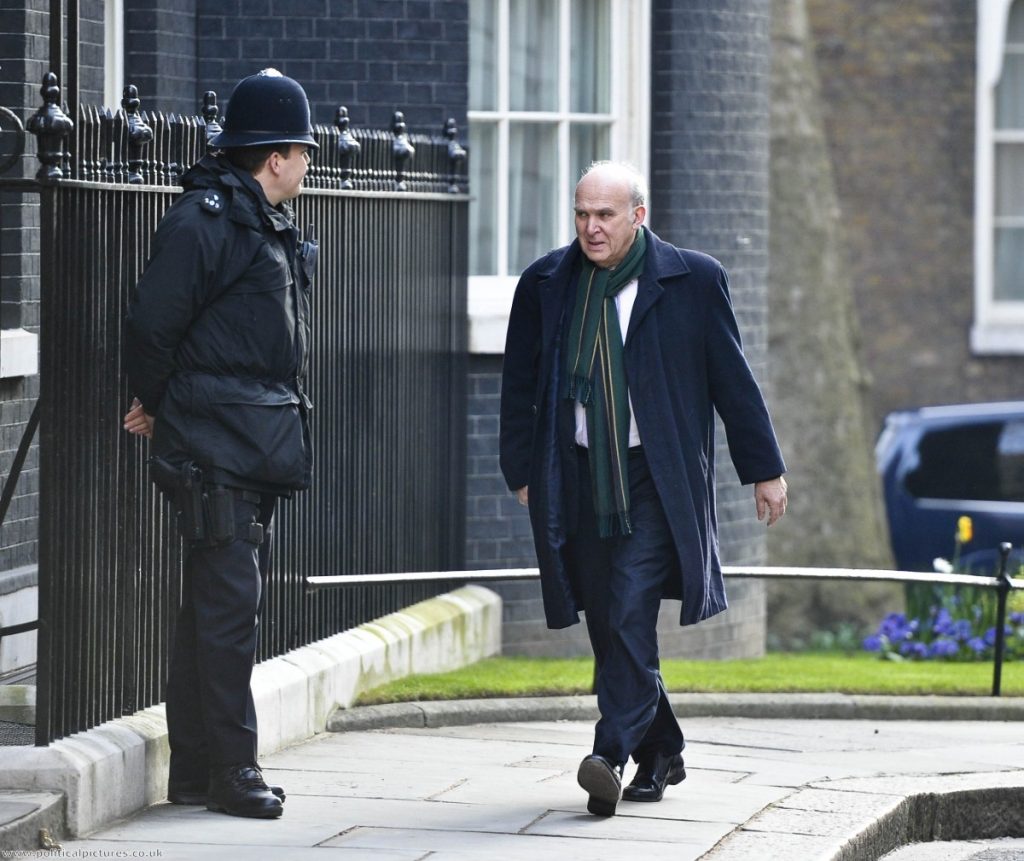Vote 2011: The recriminations begin
By Ian Dunt
Vince Cable has branded his Conservative coalition partners “ruthless, calculating and thoroughly tribal” in the wake of a disastrous set of election results.
Mr Cable reflected widespread anger inside his party at the way the Tories had conducted the AV referendum campaign but insisted it would not ruin the coalition.
“The basic reason for going into coalition wasn’t electoral reform, but the economic crisis. We still have one,” he told the BBC.


“Some of us never had many illusions about the Conservatives, but they have emerged as ruthless, calculating and thoroughly tribal.
Feature: That Lib Dem sinking feeling
Comment: Time to end the misguided attack on the Lib Dems
Local elections 2011: Five key battlegrounds
“But that doesn’t mean to say we can’t work with them. I think they have always been that way, but you have to be businesslike and professional and you have to work with people who aren’t your natural bedfellows and that is being grown-up in politics. We are going to continue to do that.”
The comments come as the Liberal Democrats reel from a horrific series of election results, where they were wiped out in the local elections in England as well as the Scottish parliamentary and Welsh Assembly elections.
The hard-fought referendum on electoral reform was defeated by a huge majority of voters on a turnout of above 40%, effectively ending the issue for a generation.
Analysis: Wales and Scotland results
“There’s absolutely no justification for panic,” Mr Cable added.
“We’ve been in much worse positions before. We’ve had councillors who have been kicked out and fought their way back and that’s the approach we have to adopt.”
Mr Cable insisted that electoral reform would be back in the picture quickly in the shape of the House of Lords, which would need a new voting system once coalition plans are followed through.
“Certainly the AV is dead,” he conceded.
“People have spoken and we have to respect that result, and so we don’t want to re-open it.
Lib Dems suffer northern meltdown
Ashdown launches stinging attack on PM
“But electoral reform certainly isn’t, there’s a good practical reason for that. The House of Lords reform has got to be faced, we can’t continue to have a system where the upper house consists entirely of members appointed by politicians.
“And we are moving towards an elected system that will, presumably, and hopefully, have to be based on some form of proportional voting, so that issue is going to come back quite quickly.”
Senior Conservatives were jubilant at winning the AV vote and preventing any major lose of councils in England but they were under strict instructions from Downing Street not to be seen celebrating, as ministers tried to prevent the election from destroying the coalition.
Home secretary Theresa May told the Today programme: “Obviously they’ve suffered losses in terms of seats but as Nick Clegg said yesterday there are still very significant issues facing this country, issues that brought the two parties together in coalition, to recognise the need to work together in the national interest.
“I think we are going to be carrying on doing what we have been doing over the past year.
“Of course we are different parties, and we continue as different parties to fight elections separately. I don’t think there is any suggestion within the coalition that somehow party identity is lost. It isn’t.”
Scottish Labour leader quits following SNP majority
Welsh Labour miss out on overall majority
Former Lib Dem leader Sir Menzies Campbell said Mr Cable’s comments were understandable.
“It was always inevitable, as I think David Cameron acknowledged, that there was going to be some bitterness,” he said.
“This is a hard fought issue, some of the terms of the exchanges have been, shall we say, less than parliamentary.”
There was uncertainty among analysts of quite how the events of this week would shape the coalition going forward. With the Lib Dems in serious trouble and Ed Miliband making only respectable – but not spectacular – gains in the local elections, David Cameron will feel that his hand has been strengthened.
Some are encouraging him to offer more concessions to the Liberal Democrats to calm down tempers in the party and secure the coalition going forward.
Others believe that the Lib Dems will now be even more reliant on the coalition formation, given that they would be wiped out if a general election was called, and that the prime minister can now afford to increasingly marginalise his coalition partner.
“Just because the referendum went a particular way not suiting the Liberal Democrats, it seems extraordinary that effectively we have got to start reopening the coalition agreement,” said Tory backbencher Bernard Jenkin.
“The idea that there are going to be some more transactions in this relationship is not going to impress the voters at all. The concessions have been made.”












